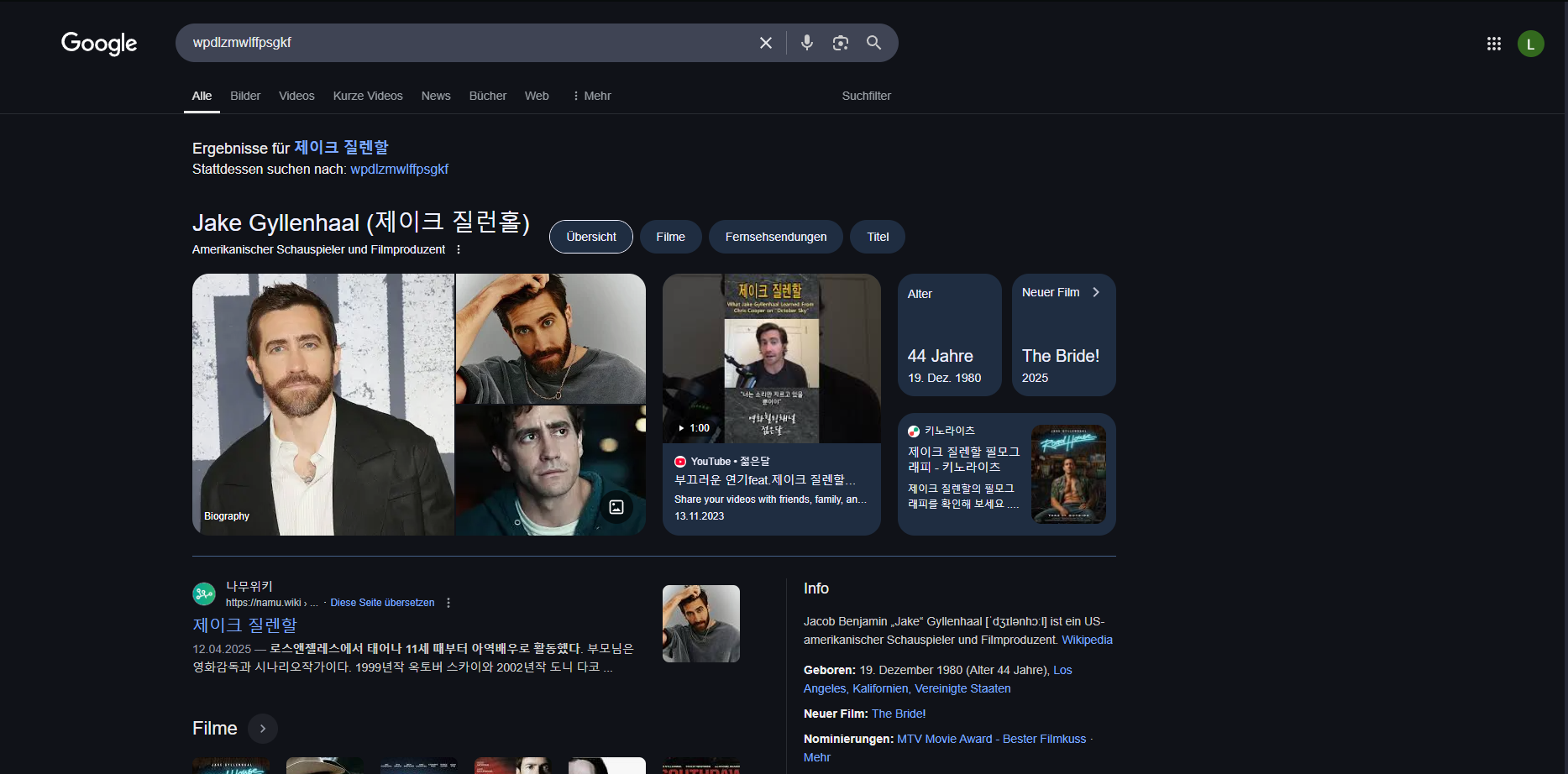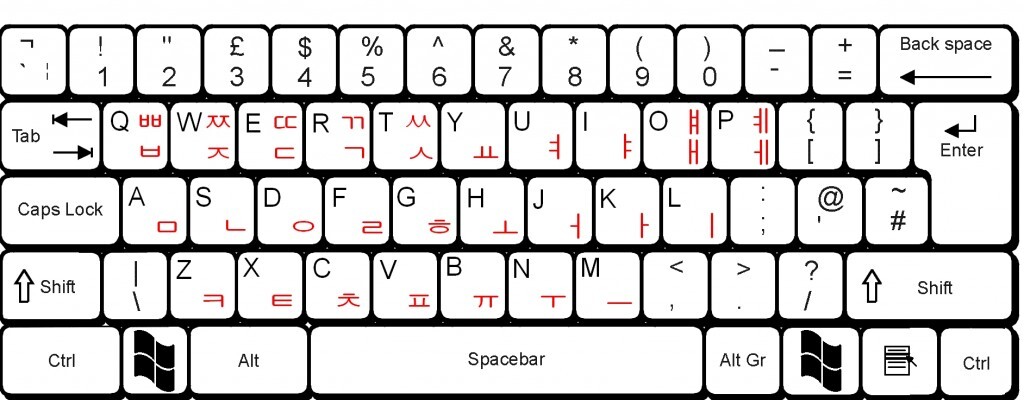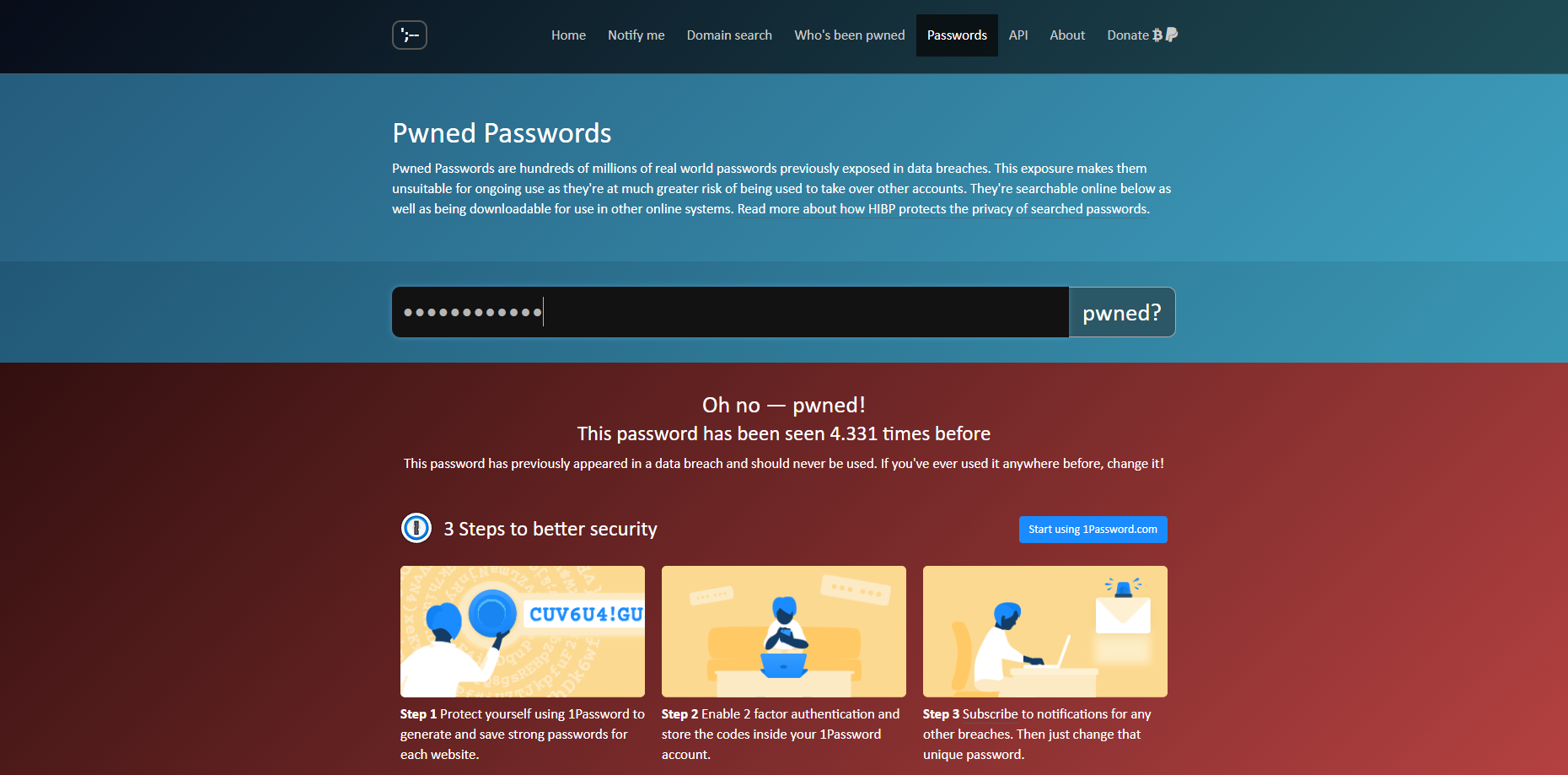If you type "zldksnflqmtm" into Google, you'll be greeted by the famous Matrix actor. But why is that?

zldksnflqmtm, known from The Matrix and John Wick, still thrills movie lovers today. Wait... I meant of course... Keanu Reeves! Why does Google find him when we've apparently just rolled over our keyboards?
Google Is Doing It For You
I'll tell you something: that was a lie. I like wpdlzmwlffpsgkf even better. But whether it's Keanu Reeves or Jake Gyllenhaal, Google still finds these twisted looking names. If you've already wondered and typed it in yourself, you might have guessed that it's not a secret code. It just happens when you don't realize that you've switched to a different keyboard layout. Google tries to correct this because it thinks you are still using a different layout.

Other Countries, Other Layouts
This is specific to the Korean layout. In Korea, a kind of phonetic alphabet is used, so you write what you hear. This makes it quite easy to write common names like Keanu and Jake. Or something like that, because Jake sometimes becomes “Jeikeu”. So on a Korean keyboard, you would press these keys in this order to search for Mr. Reeves, just like you would in English. But if you press the same keys on a normal American QWERTY keyboard, it looks totally weird. Google is used to the fact that people often switch between keyboard layouts and tries to correct this by showing you Keanu anyway. Of course, it also works the other way around: If you use a Korean keyboard and try to search for “ㅏㄷ무ㅕ ㄱㄷㄷㅍㄷㄷㄴ”, which makes absolutely no sense in Korean, you will also get Keanu Reeves. If you try to translate that with Google Translate, it even asks you if you really wanted to write Keanu Reeves in English.

No Password Is Safe Anymore!
You probably thought ji32k7au4a83 was a secure password. Well, you were wrong! In 2019, a Twitter user called Robert Ou discovered something special on the (highly recommended) site haveibeenpwned.com. The site shows you whether a password has already been leaked to the public in a data leak. The most common passwords were of course extremely secure, such as "Password" or "123456" (please don't do that), but also a seemingly random string of letters and numbers. In Taiwanese Mandarin, which uses a keyboard layout called “Bopomofo”, entering the keys ji32k7au4a83 on the English keyboard actually results in "wǒ de mìmǎ", which means "my password" in Mandarin.

And what do we learn from this? Check if your passwords say "please hack me" in any language!


































